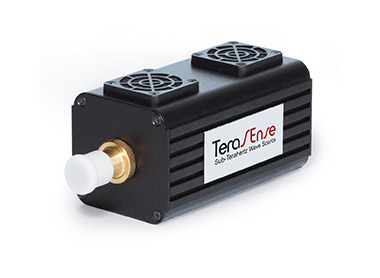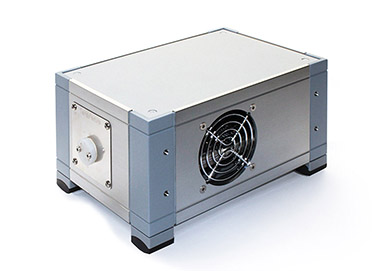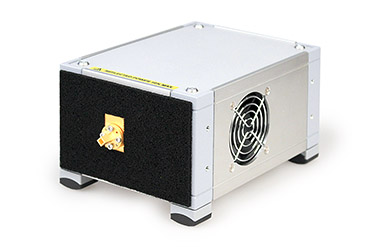Terahertz sources
Terahertz generator description
he TeraSense series of terahertz sources (IMPATT diodes) is represented by silicon double drift diodes with a 0.6 um transit region, mounted on a copper heat sink. The layers in double-drift diodes are: a heavily doped (p+)-region, a moderately doped pregion, a moderately doped n-region, and a heavily doped (n+)-region. The (p+)-and (n+)-regions allow ohmic electrical contacts to be made to the external circuit. The device relies on negative resistance to generate and sustain an oscillation. TeraSense is now offering its upgraded version of terahertz generators. The upgraded thz generator is outfitted with a protective isolator, which significantly improves output power stability. From now on you can order a THz source with either a rigidly fixed horn antenna or WR-flange of your choice. The typical output rf power of the generator with optimized frequency at 100 GHz can reach up to 100 mW. This allows them to be used together with multipliers to reach frequencies in the far terahertz spectral range. In addition, TeraSense sources feature ergonomic design and ease of use. The company can optionally supply a THz generator with attenuator and switch sections.

THz source 100 GHz
- Output rf power: ~ 80 / 180 / 400 mW
- Conical horn antenna / Flange type output
- Protective Isolator
- TTL Modulation

THz source 140 GHz
- Output rf power: ~ 30 / 90 / 180 mW
- Conical horn antenna / Flange type output
- Protective Isolator
- TTL Modulation

THz source 200 GHz
- Output rf power: ~ 50 mW
- Conical horn antenna / Flange type output
- TTL Modulation

THz source 300 GHz
- 290 GHz ~ 10 mW output rf power
- 280 GHz > 20 / 40 mW output rf power
- Conical horn antenna / Flange type output
- TTL Modulation